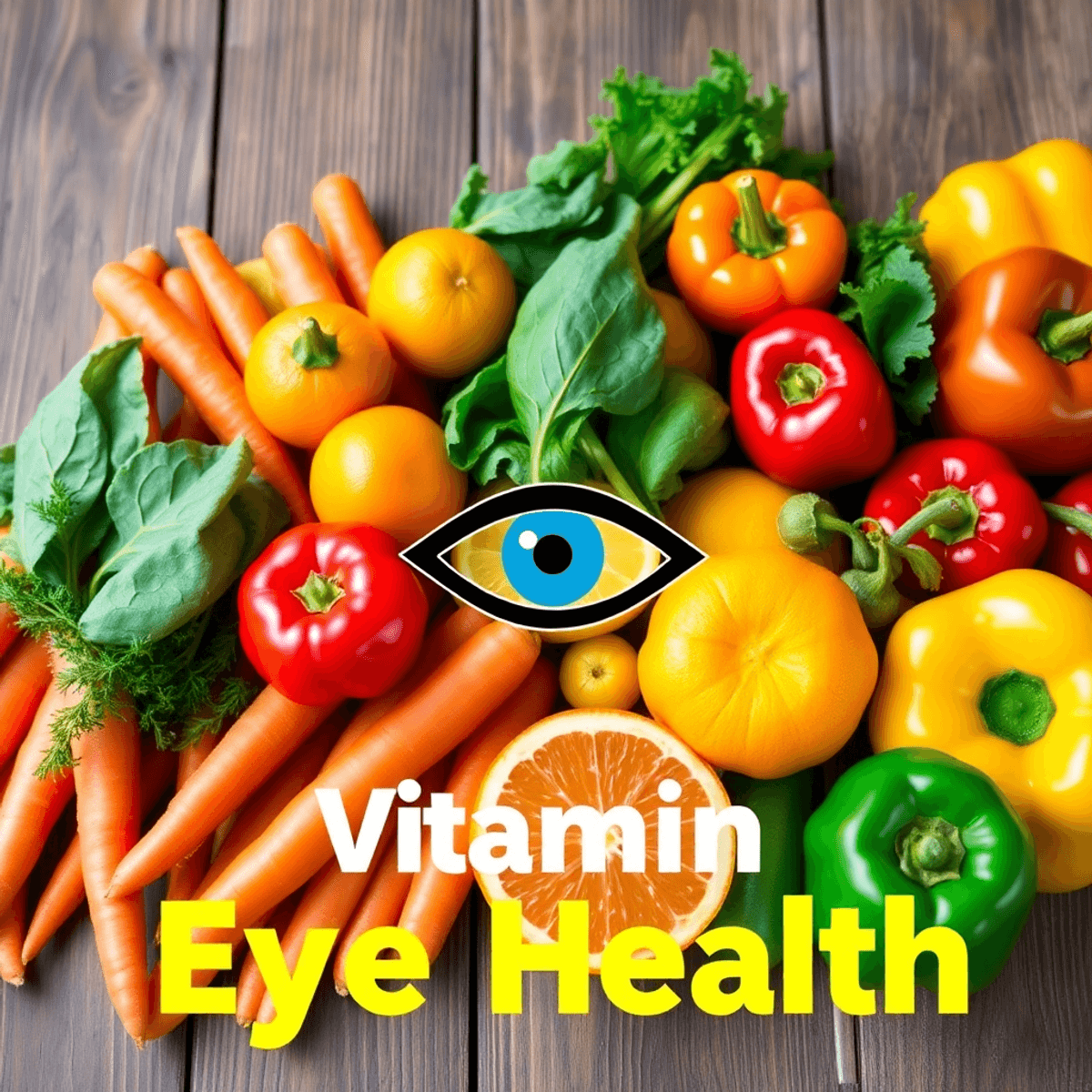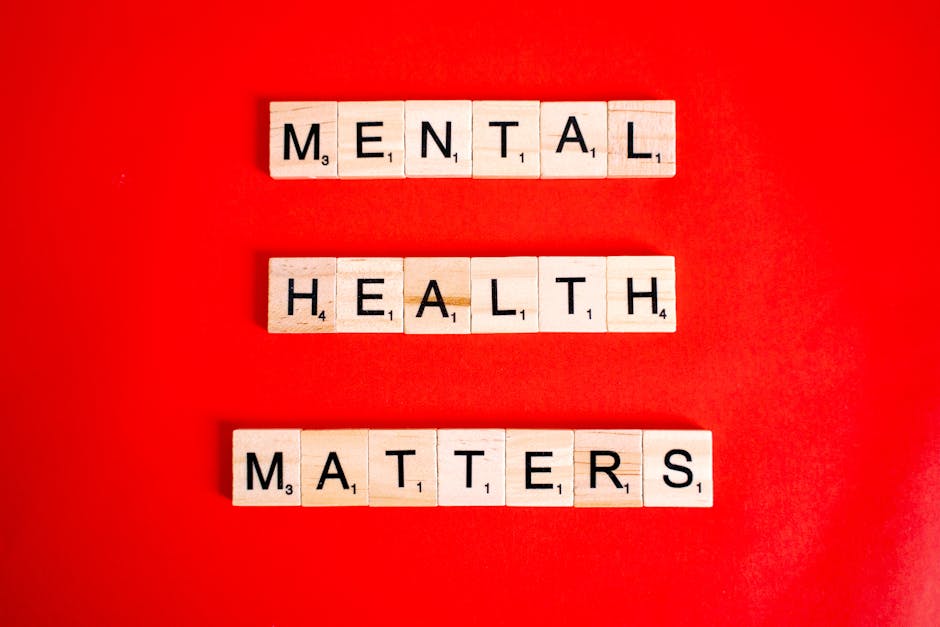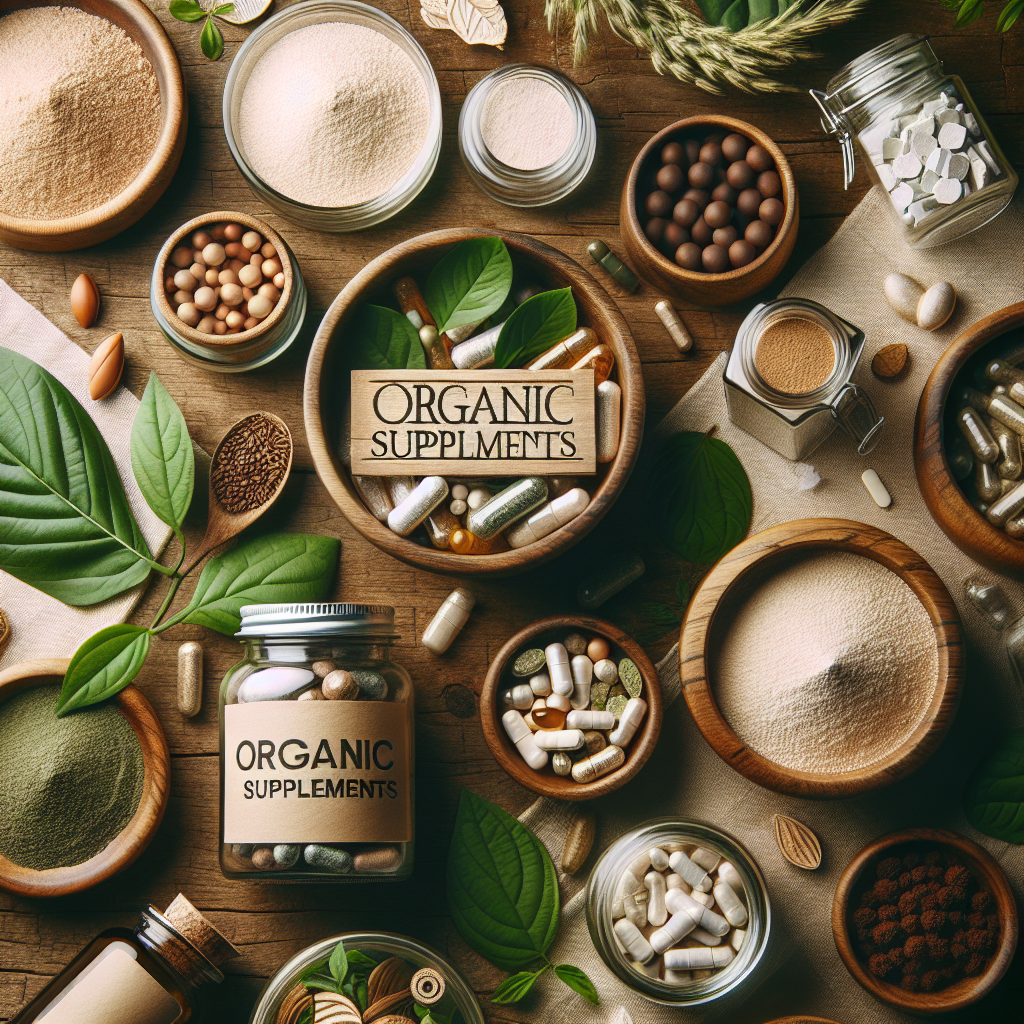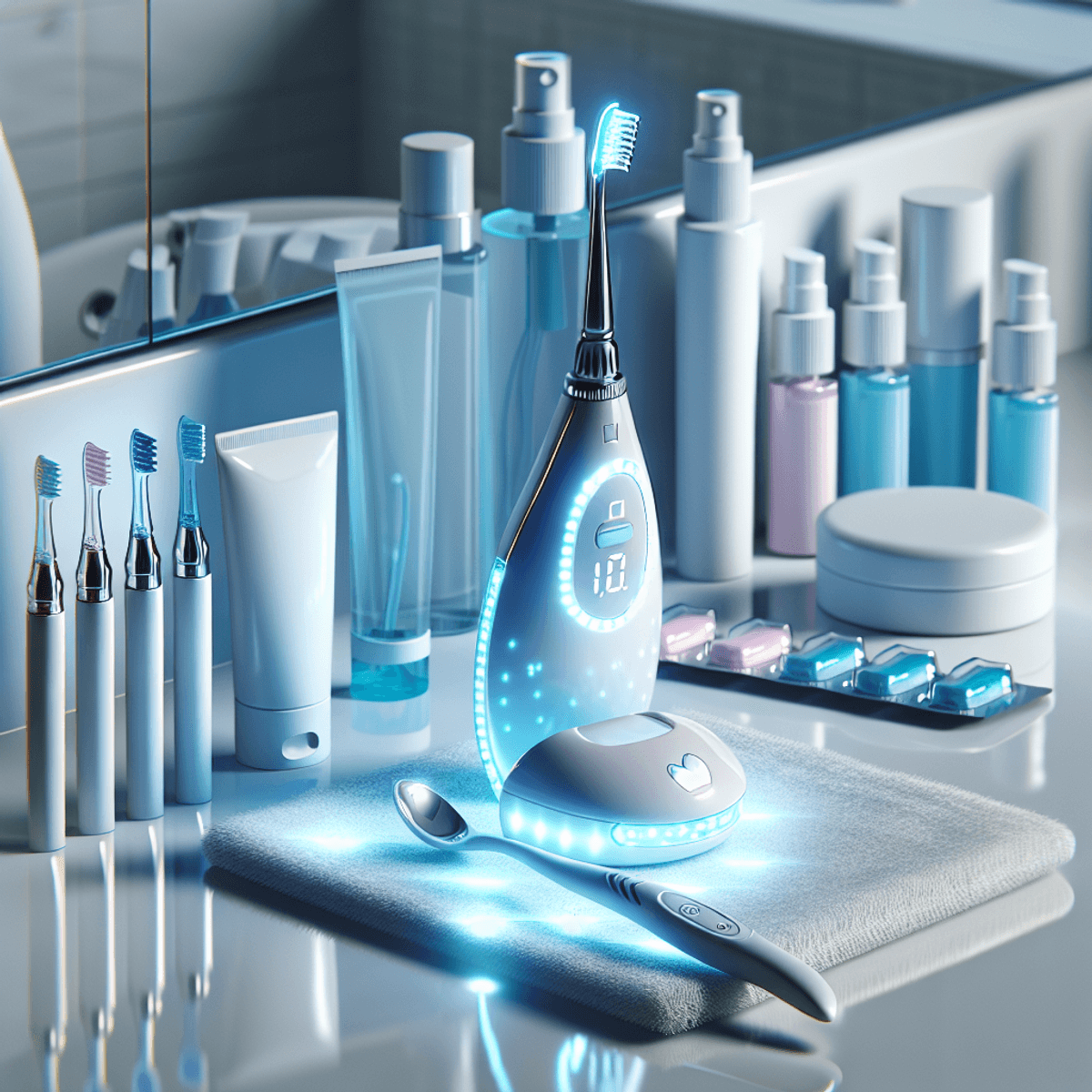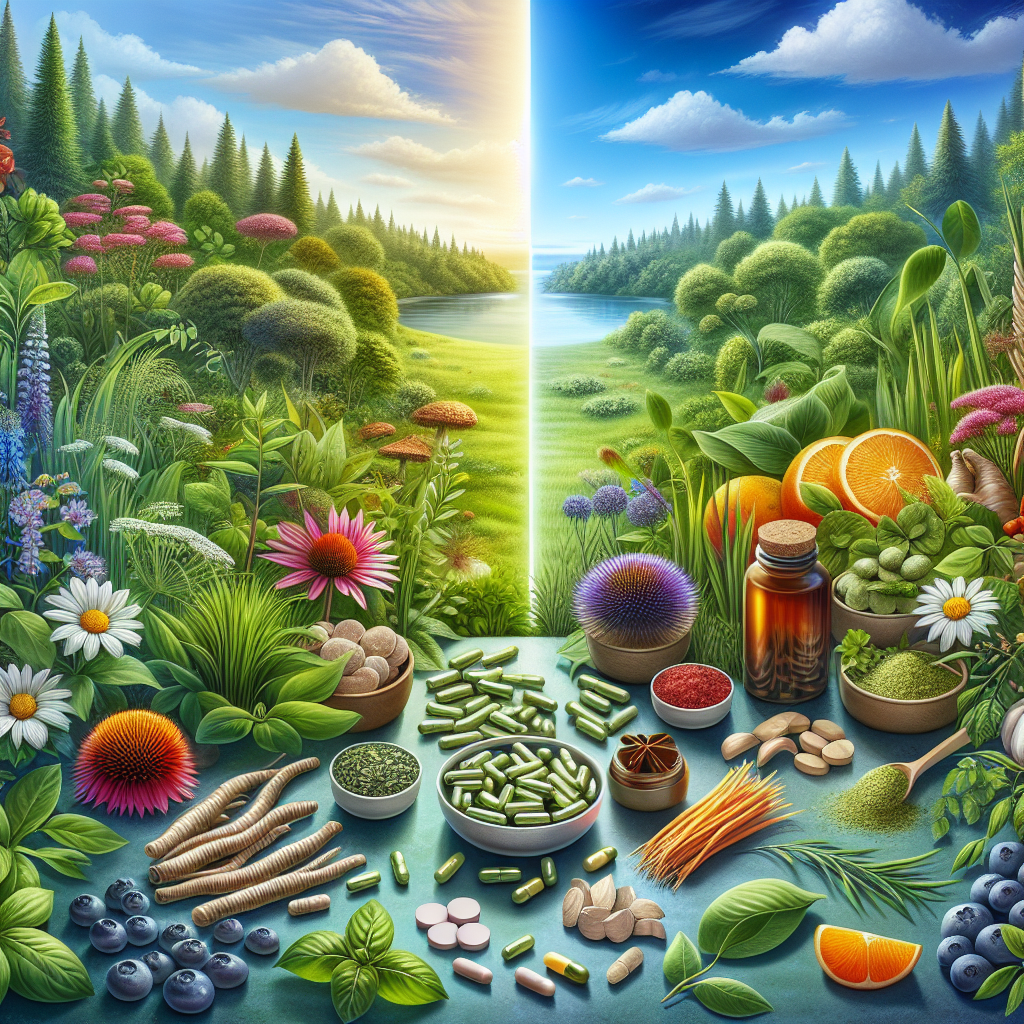Maintaining good eye health is important because our eyes are essential for seeing and understanding the world. In today’s digital age, when we spend more time in front of screens, it’s even more crucial to protect our vision. One way to do this is by including the best vitamins for eye health in our diet. These vitamins, such as Vitamin A, C, and E, are known to have a positive impact on our eyesight. By learning about these nutrients and incorporating them into our meals, we can improve our nutrition for eyes and promote long-term eye wellness.
The Role of Vitamins in Eye Health
Vitamins are essential nutrients that play a crucial role in maintaining good eye health. They support various bodily functions, including improving vision. These vitamins are some of the best ways to protect your eyesight and ensure optimal visual performance. Here’s how these vitamins contribute to overall eye health:
Vision Support
Certain vitamins, such as Vitamin A, are important for keeping the cornea healthy and producing pigments necessary for seeing in low light. This makes them vital for preventing conditions like night blindness.
Antioxidant Protection
Vitamins C and E are powerful antioxidants that neutralize harmful free radicals, preventing oxidative damage to eye tissues. This protection helps lower the risk of cataracts and age-related macular degeneration (AMD).
The ways in which these vitamins safeguard eyesight are varied:
- UV Damage Mitigation: Vitamins like Vitamin C help protect the eyes from harmful ultraviolet rays, reducing potential damage.
- Structural Integrity: Zinc plays a crucial role in maintaining the structure of the retina by aiding in the transport of Vitamin A. This partnership is essential for preserving retinal health.
Including these vitamins in your diet can greatly improve your eye health, providing long-term support for clearer vision and a lower risk of degenerative eye diseases.
1. Vitamin A
Vitamin A is crucial for maintaining good vision, particularly under low-light conditions. It supports the cornea and is essential for producing eye pigments necessary for night vision. Without enough Vitamin A, issues like dry eyes and night blindness can arise, hindering your ability to see in dim lighting.
Food Sources Rich in Vitamin A:
- Carrots: Packed with beta-carotene, a precursor to Vitamin A.
- Sweet Potatoes: Another excellent source of beta-carotene.
- Leafy Greens: Spinach and kale offer significant amounts of this vital nutrient.
Incorporating these foods into your diet can significantly contribute to better eye health and prevent deficiencies that could impair vision.
2. Vitamin C
Vitamin C is an important vitamin that acts as an antioxidant for the eyes. It helps protect against cataracts and promotes overall eye health. This powerful vitamin reduces UV damage and oxidative stress, which are major factors in age-related eye problems. By keeping high levels of Vitamin C in the clear fluid of the eye, you may be able to lower your chances of getting cataracts.
Dietary Sources of Vitamin C:
- Oranges: A popular and convenient source.
- Strawberries: Another delicious option packed with this essential nutrient.
- Broccoli: Offers a savory twist for incorporating more Vitamin C into your diet.
Including these foods in your meals can be an easy and effective way to enjoy the benefits of Vitamin C for your eyes.
3. Vitamin E
Vitamin E is important for protecting the fragile cell membranes of the eyes from oxidative damage. Its strong antioxidant properties play a significant role in preventing cataracts, a condition where the eye lens becomes cloudy. Studies suggest that consuming more Vitamin E may lower the risk of age-related eye diseases, helping to preserve clear vision as you age.
If you’re looking for natural sources of Vitamin E, nuts and seeds are great choices. Adding these foods to your diet not only promotes eye health but also offers various other nutritional advantages.
4. Omega-3 Fatty Acids
Omega-3 fatty acids are essential fats that play a crucial role in maintaining the health of your retina, which is important for clear vision. They also have been shown to be effective in treating dry eye syndrome and may even help slow down age-related retinal degeneration.
Foods rich in Omega-3s include:
- Fatty fish like salmon and mackerel
- Walnuts
- Flaxseeds
Incorporating these foods into your diet can provide the necessary support for optimal eye health.
5. Zinc
Zinc is crucial for maintaining the structure of the retina by helping transport Vitamin A to the retina. This process is vital for producing melanin, a protective pigment in the eyes. Research shows that Zinc supplementation can significantly slow down the progression of age-related macular degeneration (AMD), a leading cause of vision loss. Including Zinc-rich foods in your diet supports eye health:
- Meat: Beef and pork are excellent sources.
- Shellfish: Oysters and crab top the list.
- Legumes and Seeds: Beans, lentils, and pumpkin seeds offer plant-based options.
These choices can enrich your diet with one of the best vitamins for eye health.
6. Lutein and Zeaxanthin
Lutein and Zeaxanthin are important carotenoids that can filter harmful blue light, which has the potential to damage the retina. By absorbing this high-energy light, they help protect eye tissues from harm that can result in vision issues. These antioxidants have been associated with a lower risk of age-related macular degeneration (AMD) and cataracts, two common causes of vision loss.
Sources rich in Lutein and Zeaxanthin include:
- Green leafy vegetables such as spinach and kale
- Broccoli
- Egg yolks
Including these foods in your diet may play a significant role in maintaining good eye health.
7. B Vitamins (B12/B6)
B Vitamins, especially B12 and B6, are important for keeping the optic nerve healthy and maintaining good vision over time. These vitamins are necessary for the proper functioning of the nervous system, which includes the optic nerves that connect your eyes to your brain. If you don’t get enough B12, it can lead to optic neuropathy and possibly vision loss if not treated.
Foods Rich in B Vitamins
To make sure your eyes get the nutrients they need for optimal functioning, include these foods in your diet:
- Fish
- Poultry
- Eggs
- Dairy products
Incorporating Eye-Friendly Vitamins into Your Diet
Creating meals that are rich in essential vitamins for eye health doesn’t have to be complicated. Here’s how you can integrate these nutrients into your everyday diet:
1. Start with Breakfast
Consider a smoothie using spinach, kale, or other leafy greens packed with Lutein and Zeaxanthin. Add a handful of strawberries or a splash of orange juice for that extra dose of Vitamin C.
2. Lunch Choices
Opt for a salad loaded with vibrant vegetables like carrots and sweet potatoes to boost your intake of Vitamin A. Toss in some nuts or seeds to increase Vitamin E levels.
3. Dinner Ideas
Grill or bake fatty fish such as salmon, rich in Omega-3 Fatty Acids, complemented by a side of broccoli or asparagus to enhance your meal’s antioxidant profile.
4. Snacking Smart
Keep nuts like almonds or walnuts handy for a quick snack that offers both Vitamin E and Omega-3s.
5. Supplement with Zinc
If you’re finding it hard to get sufficient zinc from food alone, consider incorporating legumes, meat, or shellfish into your meals.
Adopting these nutrition strategies will ensure you’re consuming the best vitamins for eye health. Each meal becomes an opportunity to nourish your eyes and support long-term vision wellness.
Additional Lifestyle Factors Supporting Eye Health
Maintaining good eye health goes beyond vitamins and minerals; lifestyle habits for eye care play a crucial role as well. Understanding these factors can help you safeguard your vision:
- Hydration: Adequate water intake is essential for keeping the eyes well-lubricated. Dehydration can lead to dry eyes, which not only feel uncomfortable but can also impair vision over time. Aim for at least 8 cups of water daily to maintain optimal hydration levels.
- UV Protection: The sun’s ultraviolet rays pose a significant threat to eye health. Prolonged exposure increases the risk of cataracts and age-related macular degeneration (AMD). Protect your eyes by wearing sunglasses with UV protection, even on cloudy days, and consider wide-brimmed hats for additional shielding.
- Regular Screen Breaks: With increased screen time, digital eye strain is becoming more common. The 20-20-20 rule—every 20 minutes, look at something 20 feet away for 20 seconds—can help reduce strain and fatigue.
- Adequate Sleep: Quality sleep is vital for overall health, including eye health. During sleep, the eyes rest and repair themselves. Try to get 7–9 hours of sleep per night to support optimal eye function.
These lifestyle factors complement a nutrient-rich diet, providing comprehensive support for maintaining healthy vision throughout your life.
Conclusion
A diet rich in vitamins is essential for maintaining good eye health. By including the best vitamins for your eyes such as Vitamin A, Vitamin C, Vitamin E, Omega-3 Fatty Acids, Zinc, and carotenoids like Lutein and Zeaxanthin, you can protect your eyes from age-related problems. It’s important to focus on foods that are high in these nutrients, such as colorful fruits, green leafy vegetables, nuts, seeds, and fatty fish, to ensure a complete approach to preserving your vision.
Start making small changes to your diet today that will have a big impact on your eyesight over time. Your eyes will appreciate it!
ShopSupersmart Home pagenow at supersmart.comDiscover more from NatureZen Market
Subscribe to get the latest posts sent to your email.

